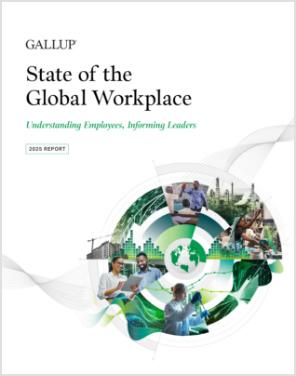Story Highlights
- Quiet quitting costs the world’s economy almost $9 trillion per year
- Work doesn’t make people unhappy; the workplace does
- Quiet quitting will continue until organizations hire better managers
“The dubious trend is officially over.”
Near the end of 2022, The Guardian pronounced the year’s most popular workplace trend -- “quiet quitting” -- dead. According to the obituary, the cause of death was the deteriorating economy. “Instead of quiet quitting, everyone is loudly laboring,” the newspaper said.
Executives may want to bury the term, but a recession won’t kill quiet quitting. That’s because the phenomenon isn’t new, even if the term is. In fact, almost four-fifths of the global workforce has either quietly or loudly quit, which costs the world’s economy almost $9 trillion per year.
New Words for an Old Concept
The concept of quiet quitting emerged last year as companies struggled to hire enough people to take on their rapidly increasing workloads. Existing employees went above and beyond to meet the needs of their organizations, and burnout ensued. Taking to TikTok, employees announced they would only do the minimum amount of work their job required. Ironically, they were doing it quietly on social media.
The TikTok videos resonated with millions. A warehouse employee in Wisconsin told The New York Times that when she heard about quiet quitting, she thought, “Oh God, that’s me. It’s been something I’ve been practicing, but I didn’t have a name for it up until now.” But notice why it resonated with her: The employee knew the feeling of emotionally detaching from work because of stress or burnout, but now she had a better way to describe the emotion.
Low employee engagement costs the global economy $8.8 trillion -- or 9% of global GDP.
The Real Recession
For months, economists have debated the kind of recession the U.S. would slide into after the Federal Reserve began raising interest rates. But what they missed is that the country is already in a recession -- not an economic recession, but an emotional one.
Coinciding with the rise of quiet quitting was a four-percentage-point decline in Gallup’s measure of U.S. employee engagement. Four points might not seem significant, but imagine if unemployment increased four points -- it would make more headlines than inflation. And declining engagement will have financial consequences. Organizations with declining engagement see decreases in productivity, customer loyalty and profitability; they also see higher absenteeism, turnover and shrinkage.
Is It the Work … Or Is It the Boss?
When people complain about their job, what exactly do they complain about?
People rarely gripe about their actual work. In fact, most enjoy it. According to a 120-country study by the Wellbeing for Planet Earth Foundation and Gallup, more than 80% of the world’s workers enjoy their work. Apparently, people enjoy work so much that they would work even if they didn’t need the paycheck. When asked about winning a hypothetical mega-million-dollar lottery, most American and German workers say they would keep working.
If more than 80% of people enjoy their work, then why are nearly 80% of workers quietly (or loudly) quitting?
The answer is this simple: Work doesn’t make people unhappy; the workplace does.
For Gallup’s most recent State of the Global Workplace report, we asked employees: What would you change about your workplace to make it better?
Some wanted better pay. Others wanted longer breaks. But the most common answers concerned their direct manager or leadership:
- “I would change the boss.” (Brazil)
- “I would like it if the managers were more approachable.” (U.K.)
- “I would like there to be a good working environment where we all treat each other with equality and respect.” (Mexico)
- “The boss must treat everyone fairly.” (South Africa)
- “It would be nice to be able to express your opinions without fear of repercussions at work.” (Spain)
In general, most people like the work they do, but they would like to change the way their manager treats them.
Building Thriving Workplaces
The truth is: Quiet quitting isn’t a long-term solution for employees. It’s a stop-gap measure for them to survive a workplace that they believe is unlikely to change. It’s not a solution for employers either. Employers need employees to go above and beyond to create exceptional customer experiences, generate new ideas and solve their organization’s most pressing problems.
Some organizations have spent years trying to figure out how to motivate their workforce. Some don’t even try. Yet some companies solved their quiet quitting problem even before the term was born. The world’s best organizations see 72% of their workforce engaged -- using the toughest engagement standard in the world. What if every organization followed in their footsteps?
In 2019, the largest companies in the U.S. came together and announced that they were no longer “shareholder capitalists,” but instead, “stakeholder capitalists.” They want a kind of capitalism that works for a range of constituencies -- including employees and communities -- and not just shareholders and the super-rich.
What if instead, the CHROs of the largest companies in the world came together and agreed to build thriving workplaces? The announcement should please every kind of capitalist. Shareholder capitalists would see productivity and profits rise, and stakeholder capitalists would see better mental health outcomes for employees.
If quiet quitting does die, it will be because the term is no longer cool on TikTok. But the feeling behind the trend isn’t going anywhere until organizations hire and develop better managers.





